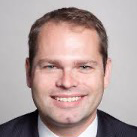The Mount Sinai Health System is proud to be home to the first MRI-Guided TULSA (Transurethral Ultrasound Ablation) Program in New York City, bringing patients a transformative, incision-free treatment option for prostate cancer and benign prostatic hyperplasia.
As one of the nation’s leading academic medical centers, Mount Sinai combines world-class radiology and urology expertise to offer a comprehensive, multidisciplinary approach to prostate care. The TULSA program integrates state-of-the-art MRI technology with real-time thermal ablation, allowing physicians to precisely target and destroy cancerous or enlarged prostate tissue while preserving surrounding structures—minimizing side effects and promoting faster recovery.
The program is led by a collaborative team of radiologists and urologists recognized nationally for their innovation in prostate imaging, robotic and image-guided surgery, and minimally invasive therapy. Their expertise, coupled with Mount Sinai’s advanced imaging infrastructure and commitment to research, positions the institution at the forefront of next-generation men’s health treatment.
Through the TULSA program, Mount Sinai is expanding access to cutting-edge prostate therapy—delivering personalized, patient-centered care that emphasizes precision, safety, and quality of life.

Call:
212-241-4046
When prompted, press 2.
At the next menu, press 1 to reach the Interventional Radiology Department / TULSA Program.

Academic Radiologist
Dr. Christine Chen is an academic radiologist at the Icahn School of Medicine at Mount Sinai, where she specializes in prostate MRI and MRI-guided interventions. She serves as the lead for the launch of Mount Sinai’s TULSA program, a transformative initiative expanding access to minimally invasive, incision-free therapy for patients with prostate cancer. Under her leadership, Mount Sinai West achieved designation as an ACR Prostate MRI Center of Excellence, reflecting her commitment to clinical excellence and innovation in prostate imaging.
Dr. Chen earned her medical degree from the David Geffen School of Medicine at the University of California, Los Angeles, and completed her diagnostic radiology residency at Yale New Haven Hospital, followed by a fellowship in abdominal and breast imaging at Weill Cornell Medicine.
Dr. Chen’s research is at the forefront of prostate imaging and artificial intelligence, focusing on improving diagnostic accuracy, communication, and patient experience. Her work has been published in leading journals including The Lancet Oncology, European Urology, and the Journal of Magnetic Resonance Imaging. In addition to her clinical and research leadership, Dr. Chen is a dedicated educator and mentor. She has developed innovative curricula for radiology trainees, guided residents to national awards and publications, and plays an active role in professional societies such as the Society of Abdominal Radiology and the Society of Advanced Body Imaging.

Program Director, Interventional Radiology Residency
Dr. Aaron M. Fischman, MD, FSIR, FCIRSE, FSVM, is Professor of Diagnostic, Molecular, and Interventional Radiology, Urology, and Surgery at the Icahn School of Medicine at Mount Sinai. He serves as Program Director for the Interventional Radiology Residency across the Mount Sinai Health System and is internationally recognized for his expertise in minimally invasive prostate interventions.
Dr. Fischman is Co-Leader of Mount Sinai’s TULSA Program, helping to advance incision-free, image-guided treatment options for patients with prostate cancer. A pioneer in prostate artery embolization (PAE) for men with benign prostatic hyperplasia (BPH), he helped establish Mount Sinai as a global leader in advanced prostate therapies. He was among the first in the United States to introduce transradial (wrist-based) access for prostate embolization, improving patient comfort, reducing recovery time, and enabling same-day discharge. He has also developed innovative methods using liquid embolics to shorten procedure duration and minimize radiation exposure.
Dr. Fischman continues to lead and participate in major multi-center clinical trials, including the BEST Trial, which compares embolization to traditional surgical treatment for BPH. He actively trains physicians worldwide in advanced image-guided prostate interventions and continues to drive innovation in minimally invasive men’s health care.

Chair of Department of Urology at Mount Sinai Downtown, Vice Chairman of Operations and Director of Minimally Invasive Surgery
Dr. Michael A. Palese, MD, is Professor and Chair of the Department of Urology at Mount Sinai Downtown & Vice Chairman of Operations and Director of Minimally Invasive Surgery for the Mount Sinai Health System. A board-certified and fellowship-trained urologic surgeon, he specializes in the diagnosis and treatment of prostate, kidney, bladder, and adrenal diseases, with a particular focus on robotic, laparoscopic, and endoscopic surgery.
Dr. Palese is a nationally recognized expert in prostate disease and minimally invasive urologic surgery. He has played a major role in developing and refining advanced surgical approaches for prostate and kidney disorders, expanding access to precise, organ-sparing treatments that improve patient outcomes. As part of his ongoing commitment to innovation in men’s health, Dr. Palese is proud to participate in Mount Sinai’s TULSA Program—the first of its kind in New York City—offering patients a state-of-the-art treatment of prostate cancer and benign prostatic hyperplasia (BPH).
Dr. Palese earned his medical degree from the Icahn School of Medicine at Mount Sinai, where he later returned as faculty to establish the institution’s robotic surgery program. He completed his general surgery and urology residency at the University of Maryland Medical Center with research training at Johns Hopkins Hospital, followed by a fellowship in robotic and laparoscopic surgery at Weill Cornell Medical College of Cornell University.
He has received numerous honors for excellence in clinical care, innovation, and education, including recognition in New York Magazine’s Top Doctors, Castle Connolly America’s Top Doctors, and The New York Times Super Doctors. Through his leadership and clinical innovation, Dr. Palese continues to advance the field of minimally invasive urologic surgery and to improve quality of life for patients with prostate and kidney disease.

Urologic Oncologist, Assistant Professor of Urology
Dr. Kyrollis Attalla, MD, is a Urologic Oncologist and Assistant Professor of Urology at the Icahn School of Medicine at Mount Sinai. He specializes in the diagnosis and treatment of prostate, bladder, kidney, adrenal, testicular, penile, and upper tract urothelial cancers, with expertise spanning robotic, laparoscopic, endoscopic, and open surgical techniques.
Dr. Attalla’s clinical and research interests center on advancing precision care for patients with prostate and other urologic malignancies. He is highly experienced in complex prostate cancer management, integrating advanced imaging, minimally invasive surgery, and emerging focal therapies to optimize outcomes while preserving quality of life. He is an active member of the American Urological Association, Society of Urologic Oncology, and American Society of Clinical Oncology.
Dr. Attalla attended The Sophie Davis School of Biomedical Education in New York City, an accelerated B.S./M.D. program in collaboration with the University at Buffalo School of Medicine, where he earned his medical degree. He completed his general surgery internship and urology residency at the Icahn School of Medicine at Mount Sinai, serving as Chief Resident, followed by a Society of Urologic Oncology fellowship at Memorial Sloan Kettering Cancer Center, where he received advanced training in complex oncologic and minimally invasive surgery.

Nurse Practitioner
Jessica Duggan, FNP-BC, is a board-certified Nurse Practitioner specializing in outpatient care, providing comprehensive patient management and support. Known for her compassionate approach and clinical expertise, Jessica is dedicated to delivering high-quality, personalized patient care and education to every patient she serves. She has a strong interest in men’s health and minimally invasive therapies and is committed to ensuring each patient’s comfort and understanding throughout the treatment process.